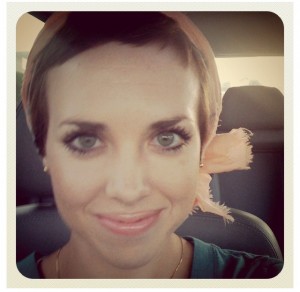Hospice Care
“This is How We Die”: A Morning with a Hospice Nurse
On Tuesday morning all I knew was that I was setting up an O’Connor table at the Heartland Hospice event that we were co-hosting. I got the table cloth & brochures all set out, greeted the attendees, and sat down in the back intending to “work” on my computer when the speaker, Barbara Karnes, a hospice nurse of 32 years, began speaking.
She said, “I don’t want to pretend that this is all Truth with a Capitol T.
This is MY experience.
Dying is the hardest thing we live through.”
(and you do live through it, that is, until you die)
That got my attention. I had the privilege of sitting for the next two hours hearing the stories and wisdom of this nurse. I typed out as much as I could of what she said, filling up 4 pages of notes and still not capturing all the information. –
Here are some of the incredible insights she gave me about death that Tuesday morning:
“We don’t die like the movies” – She mentioned scenes in movies where the dying person looks beautiful and radiant, perhaps they’re imparting some incredible words of wisdom that wrap up the whole story perfectly and then, they die . . . “This is not how people die,” she said. When people are dying of disease or cancer, the kind of people she gets to work with on hospice. “They don’t have the energy to speak, and if they are speaking, you probably can’t hear or understand what they are saying.”
“If they are a controlling person, they will control how and when they die” – She said that protective spouses or parents want to spare their loved ones from being there when they die. They will wait until they are alone to let go. She also said that if they want you there when they are going to die, then that is what will happen.
“No one dies alone” – Barbara said that all her years of experience have convinced her that we are ushered into the “other world” by the loved ones that have gone before them. She recounted the story of a 23 year old girl she was caring for whose brother died 3 weeks before she eventually would. The family chose not to tell her about his passing but shortly afterward all she could talk about was “Jim, Jim, Jim,” her brother. Her boyfriend thought she was confused, but then she looked at him and said, “No, I know who you are, Jim is here and says he’s going to take care of me.” Barbara recounted other stories like this, I’m pretty sure there wasn’t a dry eye in that room.
“Dying is always, always sad, it will never be ok. but it doesn’t have to be BAD.” – this is how you take something scary and negative and make it into a more normal and natural process that helps neutralize the fear.
Barbara inspired me and gave me truth and honesty about an element of life most of us know very little about. She changed how I see dying. She spoke about it with so much familiarity, knowledge, comfort and gentleness that it took out so much of the frightening mystery that dying is cloaked in. It will never be ok, but it doesn’t have to be bad or frightening.
To hear Barbara’s own words about dying, click here Gone From My Sight. To obtain a copy of her book,“Gone From My Sight” please contact Becky Lomaka.
What do you think of Barbara’s premises?’
In your experience, have you seen any of these played out?
*****
 From today’s guest writer: Hello! My name is Molly and I am the Communications Director for O’Connor Mortuary in Orange County, California. I had my first exposure to a mortuary as a newborn when my parents took me home to their apartment above a mortuary in downtown Long Beach. Growing up as a mortician’s daughter it’s fair to say that mortuaries have had a profound role in my life; they have shaped my perspective, grown my compassion, and become an integral part of my identity. In 2011 I obtained my masters degree in English literature and was amazed to find a job at a mortuary that so beautifully fused my passion for writing and quality literature with my passion for those in grief. I am driven to provide bereaved people with valuable resources and to educate our community on the value of ceremony and personalization. I am proud to work for such a fine establishment that fits me so well and that gives value to what I do.
From today’s guest writer: Hello! My name is Molly and I am the Communications Director for O’Connor Mortuary in Orange County, California. I had my first exposure to a mortuary as a newborn when my parents took me home to their apartment above a mortuary in downtown Long Beach. Growing up as a mortician’s daughter it’s fair to say that mortuaries have had a profound role in my life; they have shaped my perspective, grown my compassion, and become an integral part of my identity. In 2011 I obtained my masters degree in English literature and was amazed to find a job at a mortuary that so beautifully fused my passion for writing and quality literature with my passion for those in grief. I am driven to provide bereaved people with valuable resources and to educate our community on the value of ceremony and personalization. I am proud to work for such a fine establishment that fits me so well and that gives value to what I do.

